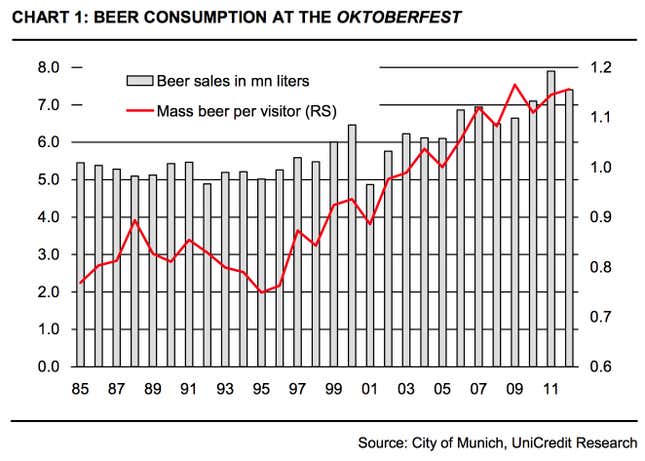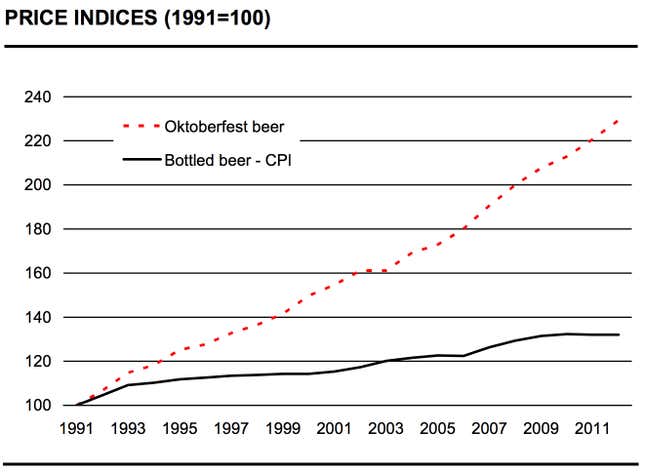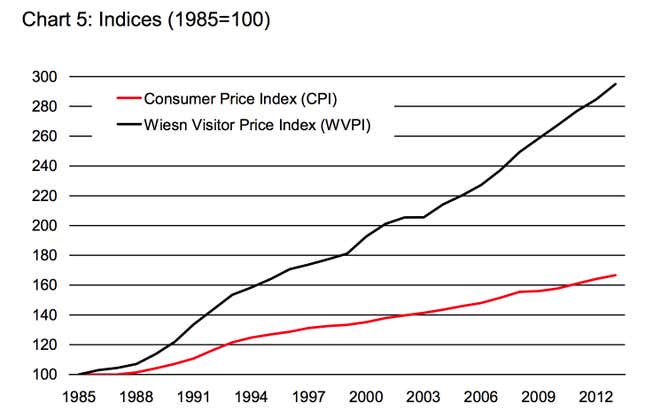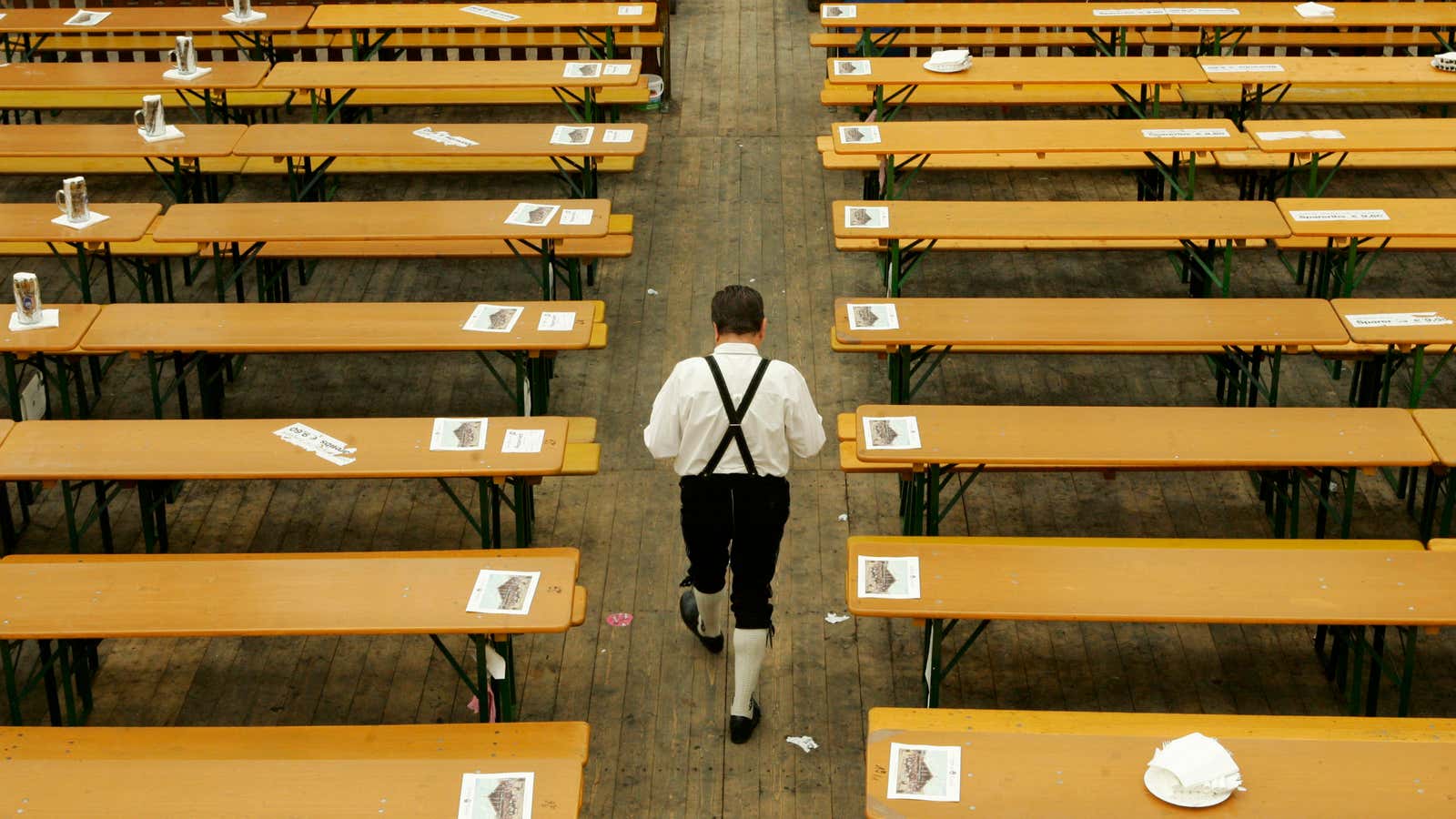Beer is what economists call an elastic good; the more it costs, the less of it people buy. But at Oktoberfest, Germany’s debaucherous annual beer festival in Munich, the rule doesn’t exactly hold. In fact, it gets flipped on its head.
When this year’s beer festival kicks off on Saturday, more than 7 million beer drinkers will gather to drink some 15 million liter glasses. If they are sober enough, they will notice that their lagers, ales and stouts cost more than they did last year. As is the case almost every year, the price of beer at the Oktoberfest has risen faster than inflation, according to UniCredit Research’s Oktoberfest 2013 report. The average beer at this year’s festival will cost €9.66 ($13)—3.6% more than it did last year.
Considering that inflation in Germany is currently hovering somewhere closer to 1.5%, festival goers should be outraged. And yet, like they have virtually every year before this, they will buy and drink more beer per head than they did the year before. Beer consumption per capita at the annual beer festival (the red line in the chart below) has been rising steadily since the mid 1990s.

And it isn’t as though beer prices on the whole in Germany are outpacing inflation. Bottled beer prices have been rising at a much slower pace than Oktoberfest beer prices.

Normally, beer buyers shy away from this kind of price-hike craziness. “On average, a 1% increase in the price of beer triggers a roughly .3% decline in the demand,” according the report. But Oktoberfest, it appears, is anything but average. Dating all the way back to 1980, a 1% increase in beer prices at the event has, rather incredibly, corresponded with a 0.3% increase in demand. Oktoberfest beer, the report explains, falls into the category of what economists call a Giffen paradox, whereby the demand for and price of a good increase simultaneously.
The festival as a whole follows a similarly peculiar pattern of behavior. Oktoberfest-goers have continued to spend more per capita, despite hikes in the price of, well, everything. UniCredit’s Wiesn Visitor Price Index (WVPI), which tracks the cost of visiting the event by accounting for public transportation, beer and food prices, has increased by 4% every year since the bank began to track it in 1985.

As with so many other festivals, Oktoberfest has become something very different to what it once was. When originally conceived back in 1810, it was held to celebrate the marriage of Bavaria’s Crown Prince. Over 200 years later, it has become something of a beer-drinker’s mecca, and economic wonder. Without a detailed understanding of the costs involved in hosting the event—and, really, whether they have been rising quickly as the festival’s beer prices have—it’s probably safest to say that until beer-drinkers stop celebrating the price hikes, Oktoberfest is going to keep pouring them on. (The organizers of Oktoberfest didn’t respond to a request for comment.)
